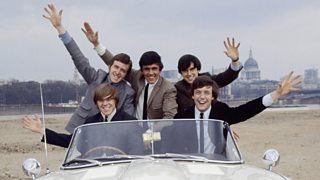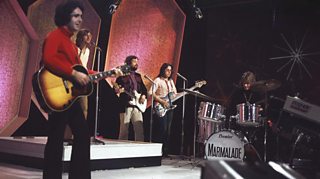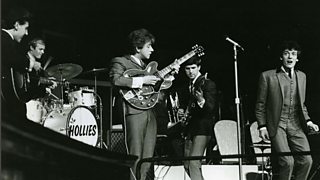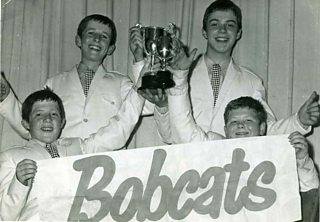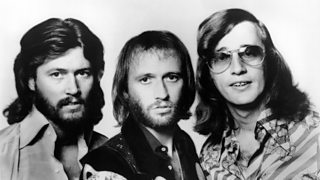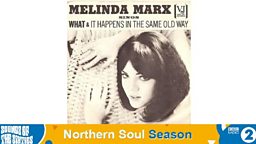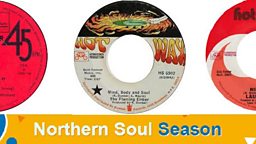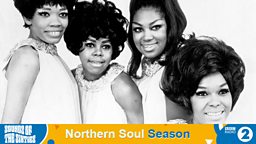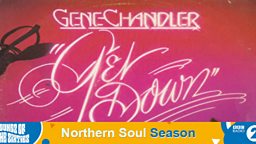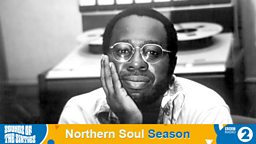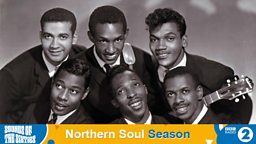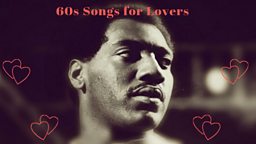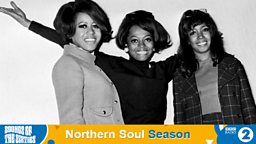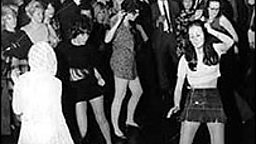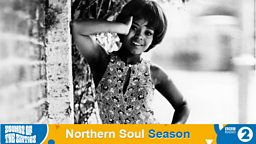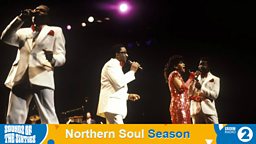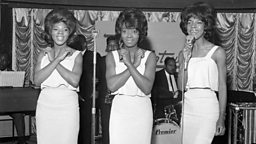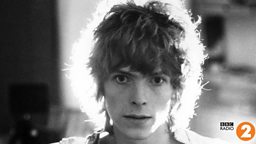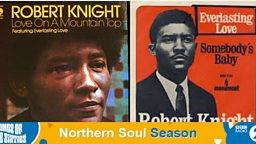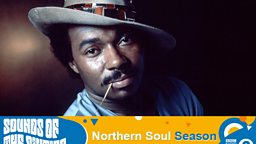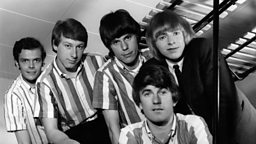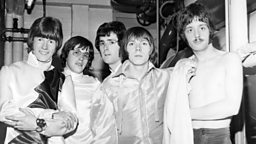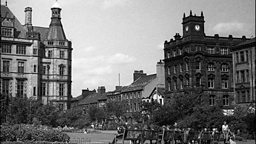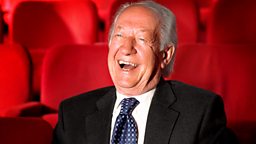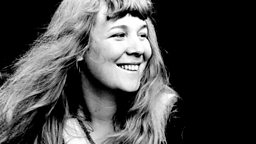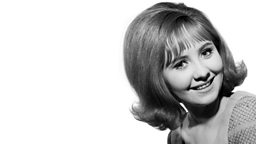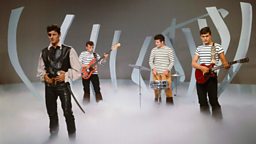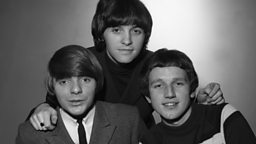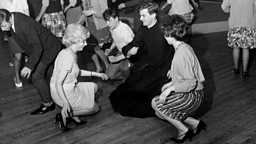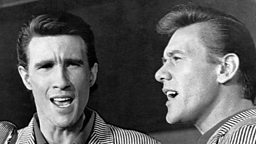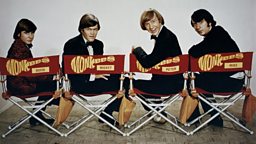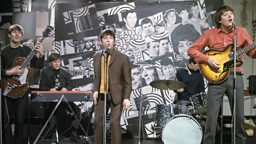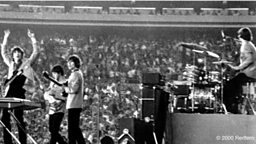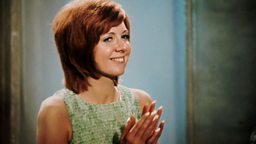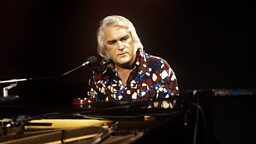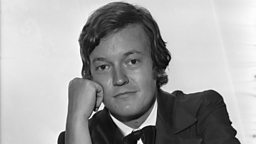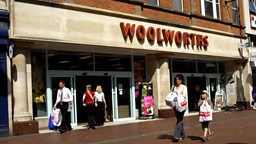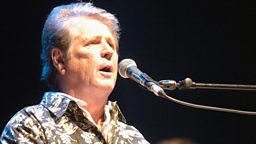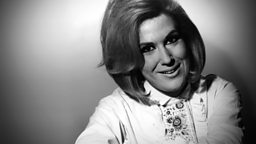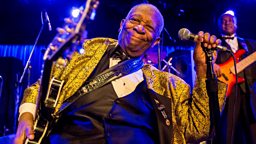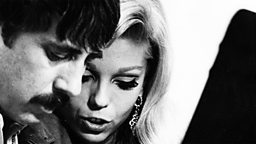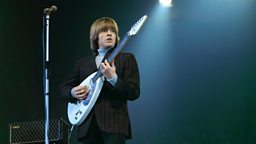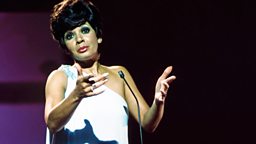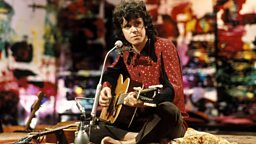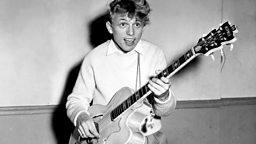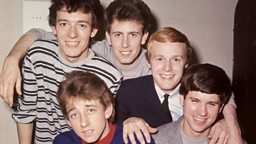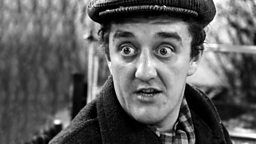Beat Cities: Liverpool
"Liverpool: the city that inspired the rest of Britain to grow fringes and play their guitars high": Bob Stanley's words on the city at the epicentre of the British beat scene
This week's SOTS column complements the first in a short series on Beat Cities, looking at the beat boom that engulfed Britain in 1963 and 1964. Where better to start than Liverpool, the city that inspired the rest of Britain to grow fringes and play their guitars high? Rather than going back to the Cavern, I thought we could take a look at a couple of less familiar locations.
I can still see George and John racing up to the stage with their mouths full of hotdogsEddie Amoo
Brothers Joe and Eddie Ankrah started a five-piece vocal harmony group called the Shades (with Nat Smeda, Alan Harding, and Eddie Amoo) in 1961; they were based at Stanley House, a social club for Toxteth's black community on Upper Parliament Street. Their sound was a capella, centred on doo wop and R&B singles they had picked up from American servicemen from Burtonwood who would hang out at Stanley House and the other clubs in Liverpool 8. After changing their name to the Chants, they met Paul McCartney in October '62 at the Tower Ballroom, New Brighton, and he told them to come by the Cavern for an audition after a Beatles lunchtime show. There they sang A Thousand Stars, and Eddie Amoo remembers "I can still see George and John racing up to the stage with their mouths full of hotdogs.” The following day, they debuted at the Cavern - with the Beatles backing them.
Brian Epstein, initially reluctant for his boys to back anyone, briefly managed the Chants in 1963 but they felt his heart wasn't in it and left him before contracts were signed (now, there's a great 'what if?'). That year they landed a deal with Pye - I Don't Care was their first of four singles for the label in September '63. Despite their lack of success, they carried on, and their obvious quality led to further singles on Fontana, Page One, Decca (where A Lover's Story gave them a Radio London 'Big L' turntable hit in the summer of '67) and RCA (check the fine Eddie Amoo-written A Man Without a Face from 1968). They carried on until 1975; Eddie Amoo's brother Chris formed the Real Thing that year, Eddie joined and finally he achieved chart success.
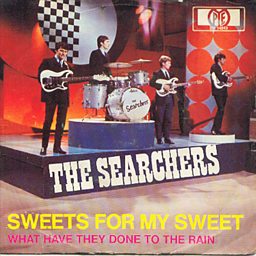
Back in March 1964, the Chants had played at the Iron Door club on Temple Street. The venue would close for good a fortnight later, safe in the knowledge that it had launched its house band The Searchers to international success. They had released four singles on Pye by March '64 - three had been number ones, with Sugar And Spice only falling one place short. , but things were just about to come apart. Lead singer Tony Jackson quit in July '64 as producer Tony Hatch seemed to favour softer voiced Mike Pender – and so did the group's de facto leader, drummer Chris Curtis.
At this point [The Searchers] were probably the biggest group in the country after the Beatles
Curtis, effervescent and never less than eccentric, had steered the group into doing more girl group covers (check their wispy, ethereal Be My Baby) and folk-based material. He himself left in 1966 and later formed a group called Roundabout in 1968 with keyboard player Jon Lord and guitarist Ritchie Blackmore, but his drug-fuelled unpredictability led them to evict him from his own band. Minus the erratic Curtis, they became Deep Purple – his legacy for the band would be their first hit, a Joe South song he had discovered called Hush. In 1969 he left the music business completely for a job at the Inland Revenue, but would eventually make the occasional foray into karaoke at his local pub before his death in 2005, aged 63.
-
![]()
Bob Stanley with some of the best Beat bands from the Capital...
-
![]()
The little told story of the Glasgow beat bands
-
![]()
Bob Stanley on Sheffield beat band, 'The Sheffields'
-
![]()
The Hollies and The Toggery Five: inside Manchester's beat scene in the 1960s with Bob Stanley
-
![]()
The Beat Boom: Birmingham in the 1960s
-
![]()
Discover the stories behind today's selection of 60s records
